There is a growing movement of rural women asserting their rights as farmers, as small-producers, as agricultural workers, as fisherfolk, as Dalits, or as part of Indigenous Peoples’ communities. They are fighting for their rights to land and resources, their rights to healthy and safe food, their rights to determine government policies that are in favor of the marginalized and poor, ultimately empowering themselves as they hold up half the sky.
Here are some stories of empowered rural women in the different communities in some of the countries PAN Asia Pacific is reaching out to and working with. These stories inspire other women across the globe to Rise Up!
Philippines
Juliet Ragay
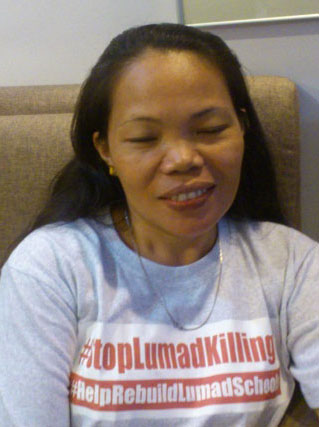 47 year-old Juliet Ragay was exposed to community work at an early age.
47 year-old Juliet Ragay was exposed to community work at an early age.
During her teens, she was active in helping the women in their community in delivering free health services to their neighbors. She says her commitment to the community deepened even more, when she joined KAUGMAON, the local chapter of KMP (Peasant Movement of the Philippines) in Negros Oriental, a province in Southern Philippines.
She once joined a fact -finding mission of KMP when one of its leaders was murdered. Upon learning that poor farmers are becoming victims of human rights abuses perpetrated by the military, she became active in speaking against such atrocities and joining rallies to denounce abuses perpetrated against the people.
Later on, Juliet was elected as the chairperson of BANIKA, a local chapter of the nationwide federation of peasant women, AMIHAN.
She says they have a lot of work in their organization, especially since they face a lot of problems including militarization, land-use conversion and mining. They also campaign for equal wages for women.
Juliet shares: “As the chairperson of BANIKA-AMIHAN, I ensure meaningful and productive meetings. I try to set a good example and have learned to accept my weaknesses, criticisms, and most importantly, strive to correct them. I was able to visit different areas, and able to facilitate support for communities during calamities. Because of this, I have earned the love and respect of my community.”
Philippines
Marissa Cabaljao
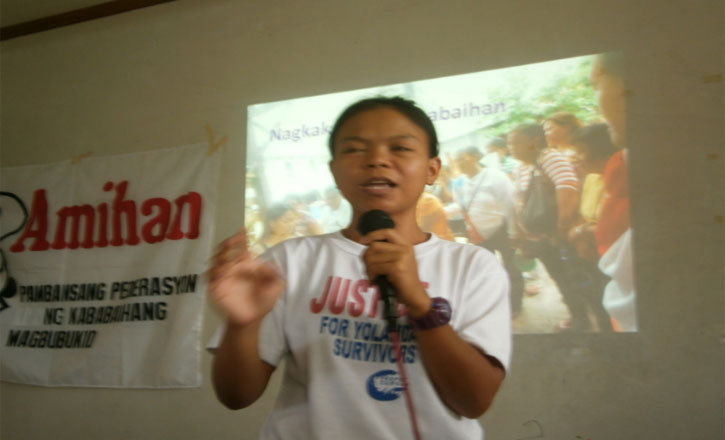 31 year-old Marissa Cabaljao is a single mother with two children. She is currently the Secretary General of “People’s Surge,” an organization formed by the victims of Typhoon Yolanda (international name: Haiyan). In November 2013, Typhoon Yolanda, one of the most intense tropical cyclones on record, devastated the islands of Leyte, Philippines, submerging whole towns and cities, and causing an estimated 10,000 deaths.
31 year-old Marissa Cabaljao is a single mother with two children. She is currently the Secretary General of “People’s Surge,” an organization formed by the victims of Typhoon Yolanda (international name: Haiyan). In November 2013, Typhoon Yolanda, one of the most intense tropical cyclones on record, devastated the islands of Leyte, Philippines, submerging whole towns and cities, and causing an estimated 10,000 deaths.
Before the typhoon, Marissa was a Barangay (lowest government administrative level) secretary. She says working for the government, she came to know how officials neglect their responsibilities. Marisaa recalls, “I learned about the corruption in government. In meetings, barangay officers talked about what they want and not what the people want. That’s when I learned how to be a leader: one should be for the people and should listen to the people.”
When Typhoon Yolanda came, Marissa recalls how there were no means of livelihood. She said that the municipal or city government units took control of the barangay funds leaving them helpless. She says the only thing they could do was speak in the radio to let others know what was happening. She criticized the bureaucratic way the government handled the disaster. “The people were already dying of hunger but they were asking too many questions.” Instead of ensuring rice and relief, they were asking first for reports on how many square meters of camote (sweet potato) and coconuts were affected,” she adds.
At that time, Marissa could not take care of her own children because she was helping too many victims. She prioritized helping others and left her mother to take care of her children.
Marissa reflects: “I used to think about my family only, but now I’m carrying the world in my shoulder. Typhoon Yolanda destroyed everything. I learned to speak for those who cannot speak. That was when I realized the importance of becoming a leader. “
“I know now that as long as there is oppression, people will fight for their liberation.”
Sri Lanka
Ramaletchumy
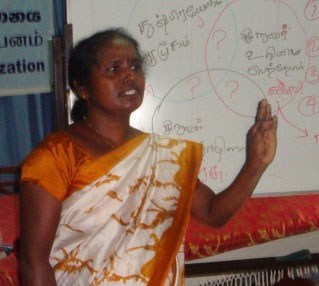 Ramaletchumy of Deltota, Kandy, Sri Lanka, or teacher Ramesh as everybody calls her, is the President of the Women Solidarity Front (WSF).
Ramaletchumy of Deltota, Kandy, Sri Lanka, or teacher Ramesh as everybody calls her, is the President of the Women Solidarity Front (WSF).
Ramesh is a single mother of two children in a marginalized plantation community, and is known by all the women in the area as a talented speaker. Before joining WSF, she was a volunteer teacher in an Estate school.
She is involved in the Local Level Language Committee and she can write and speak Tamil and Sinhalese languages fluently. She is also involved in election monitoring and advocating for political reservation for women (representation of women in political parties through reservation or quota for women representatives). She negotiates with management regarding women workers’ problems, housing and land rights.
In her free time, she cultivates an organic garden. Very careful with environment issues and health, she cooks exclusively in natural ways and never uses industrials products.
Sri Lanka
Rilifa Begum
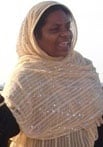 Rilifa Begum is a progressive Muslim woman who lives in Kalmunai, Ampara Sri Lanka. She faced many troubles in her married life, including domestic violence. Her married life ended in 2008 when her husband left her. Since then, she worked with the Muslim Women Research Center, which supports women in legal actions.
Rilifa Begum is a progressive Muslim woman who lives in Kalmunai, Ampara Sri Lanka. She faced many troubles in her married life, including domestic violence. Her married life ended in 2008 when her husband left her. Since then, she worked with the Muslim Women Research Center, which supports women in legal actions.
She started a women’s society group to promote self-employment for women. The group does business of buy-and-sell of stationaries where the income is divided among all the members.
Rilifa says she became a very confident leader after she attended trainings on human rights, gender equality and peace reconciliation organized by the Human Development Organization (HDO). HDO is a Sri-Lankan organization fighting for the establishment of a socially just, equitable and peaceful civil society through poverty eradication and sustainable development.
Later on, she learned to speak on Muslim Sharia laws and do awareness-raising activities for women. After 2012, she joined groups advocating for rights to safe and organic food, and organic farming. She is an assistant leader of the Velvi Forum which advocates for women’s representation in the political parties.
Senegal
Tine Ndoye

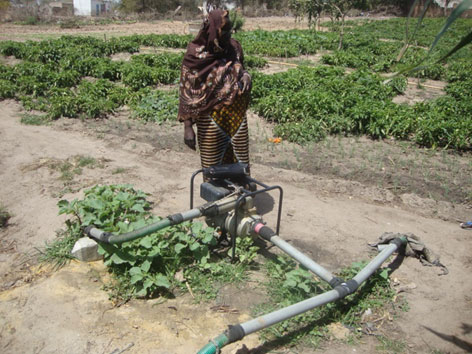
Born in Rufisque, a town in the outskirts of Dakar, Tine Ndoye married a farmer who came from her father’s village. Living in the said village for 22 years, Tine observed how rural women work all day long, from sowing to harvesting, but still come home empty handed at the end of the day. She says such situation motivated her to organize the women of the village. This small group that Tine organized will eventually grow to become the National Network of Rural Women of Senegal (RNFRS) in which FAO-Dimitra played a fundamental role.
Tine would later become a councillor in the rural community of Diender before being appointed as the second deputy mayor of the Kayar village. During her term, she was the only female among 27 councillors. She says the gender equality law was not even mentioned during that time. As deputy mayor, she fought for the village to have access to electricity and pipe borne water.
Tine says that since 2002, the issues of women are more and more becoming recognized. Among the issues are women’s right land access. Neither religion nor the law states that women can have equal access to land resources as men do. On the other hand, during that time, they also acknowledged that among the main challenges for women is access to information and communication.
In 2014, the President of the Republic of Senegal assigned 120 positions to Senegal professional and women organizations at the Economic, Social and Environmental Council (CESE). Tine is now the economic social and environmental councillor at the CESE and a member of the National Observatory of male / female parity.
Senegal
Gueye Mbaye
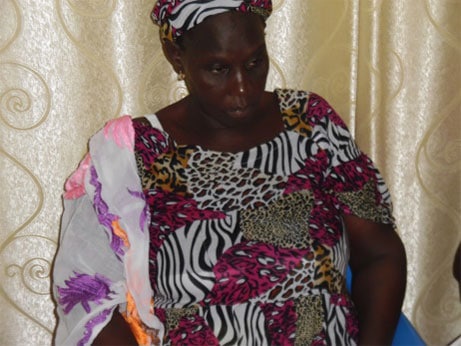 Gueye Mbaye has been the president of the Union of Market Gardeners of the Niayes for several years. During the early 2000s, she was trained by PAN Africa and FAO on the integrated management of pests and products. Since then, she has been applying organic agriculture and has been active in encouraging the women in their community to practice safe and sustainable agriculture. She has organized awareness and information campaigns on agroecology in her community as well as surrounding villages.
Gueye Mbaye has been the president of the Union of Market Gardeners of the Niayes for several years. During the early 2000s, she was trained by PAN Africa and FAO on the integrated management of pests and products. Since then, she has been applying organic agriculture and has been active in encouraging the women in their community to practice safe and sustainable agriculture. She has organized awareness and information campaigns on agroecology in her community as well as surrounding villages.
Gueye also went into politics to defend women’s rights, especially rural women’s rights. She was elected as the second deputy mayor of the town of Kuyar in 2007. She says the position has allowed her to lobby for women farmers to be granted in land in Kayar and Niayes.
She says her struggle has yielded positive results after the president of UPM/GIPD decided to give a piece of land to the women of the union to allow them to farm and have financial autonomy.
“My greatest challenge right now is to help women achieve financial autonomy and equal access to land resources in the union, in Niaye and in Senegal as a whole,” she adds.
India
Arputhammal
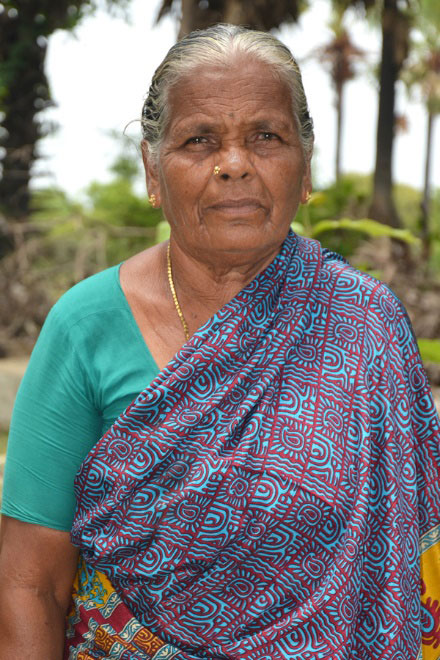 Arputhammal is an agricultural laborer from Illupur village of Thiruvellore District, Tamil Nadu, India who was offered an opportunity to get trained in midwifery. After her training, she started assisting in child births in her community.
Arputhammal is an agricultural laborer from Illupur village of Thiruvellore District, Tamil Nadu, India who was offered an opportunity to get trained in midwifery. After her training, she started assisting in child births in her community.
When the Rural Women Liberation Movement addressed a case of a gang rape of a twelve year-old child, Arputhammal took part in a march and meetings seeking justice for the victim. This experience taught her the dimensions of caste system and gender violence issues and inspired her to become active in the movement.
She actively participated in several successful campaigns of the movement, such as land ownership for 40 women, construction of 32 houses owned by women, and ban of liquor use in the community.
Once, Arputhammal had an opportunity to attend an exchange program of women farmers in Malaysia. She had to travel alone by air for the first time. Even if she can’t speak english, she managed the journey beautifully by following her fellow passenger’s actions. She says she learned a lot from the exchange program.
Arputhammal would later become the president of the movement. Arputhammal firmly believes in her leadership qualities and that she would be able to handle any issue. She sdeclares: “Agriculture should be safeguarded at any cost.”
Vietnam
Vu Thi Lan
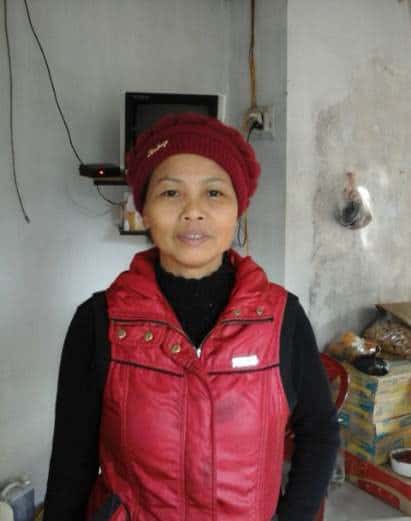 “She is always enthusiatic, sincere, and helpful”. These are among the words of praises of the women of village 11 in Hai Son commune, Hai Hau district to Vu Thi Lan, the leader of the village women’s union.
“She is always enthusiatic, sincere, and helpful”. These are among the words of praises of the women of village 11 in Hai Son commune, Hai Hau district to Vu Thi Lan, the leader of the village women’s union.
Vu Thi Lan has been working for the women’s movement for 20 years. Her husband supports her and even takes her by motorbike to trainings to show his support of other women who are facing difficulties.
She mobilizes the support of the village union for women who are in need. She always speaks out to protect women and children. And as such, some of the women overcame their difficulties and moved ahead with their lives.
Vu Thi Lan has also established a credit model to develop economies, as well as clubs such as the “clean breeding and vegetables at home.” She raises red-worms and hens together with ecologically-safe vegetables to provide for her children who are living in Hanoi. Many women follow her model.
——————-
These are just some stories of rural women at the forefront of the fight for empowerment. May their stories and journey inspire more women to join the ever-widening mass movements of women all over the world.
We welcome your questions, comments, suggestions and contributions. Email us at: info@panap.net
Our Stories, One Journey aims to highlight women’s stories of struggles and victories across the globe. As part of PAN Asia Pacific’s Women Rise Up campaign, it celebrates the one journey that connects women all over the world, specifically rural women – the journey towards empowerment, gender equality, food sovereignty and genuine freedom from all forms of oppression and discrimination.

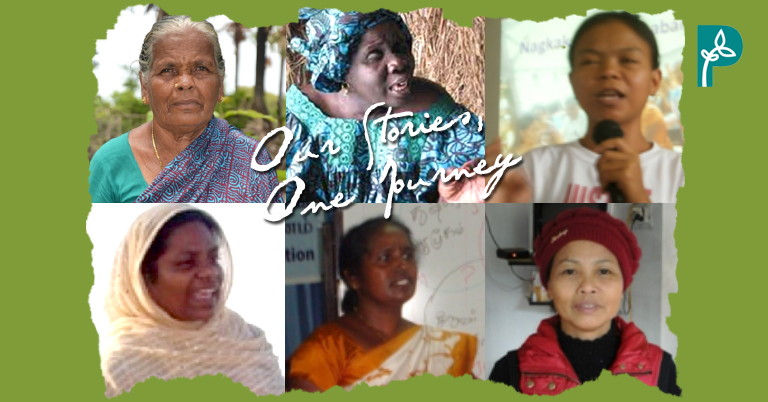






Discussion about this post